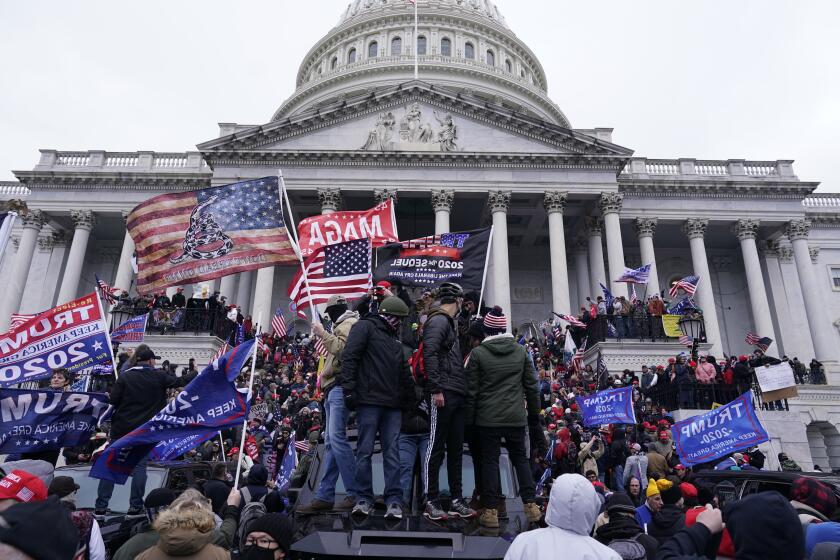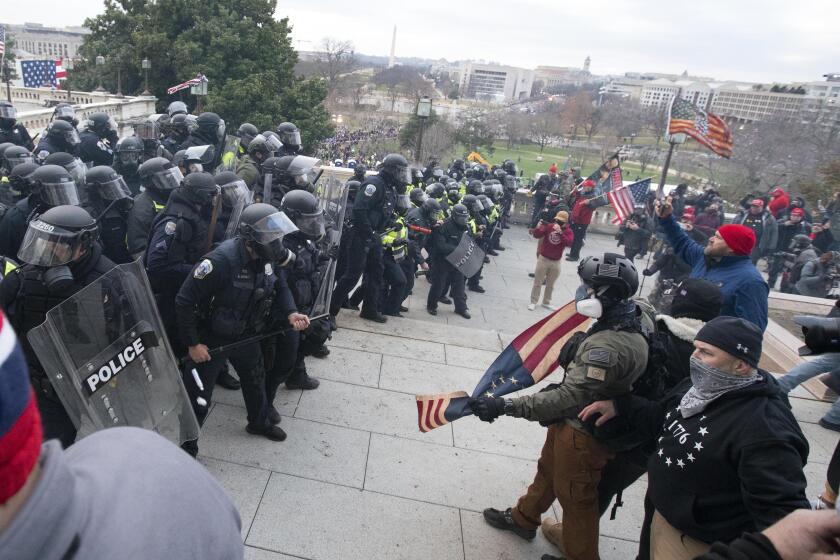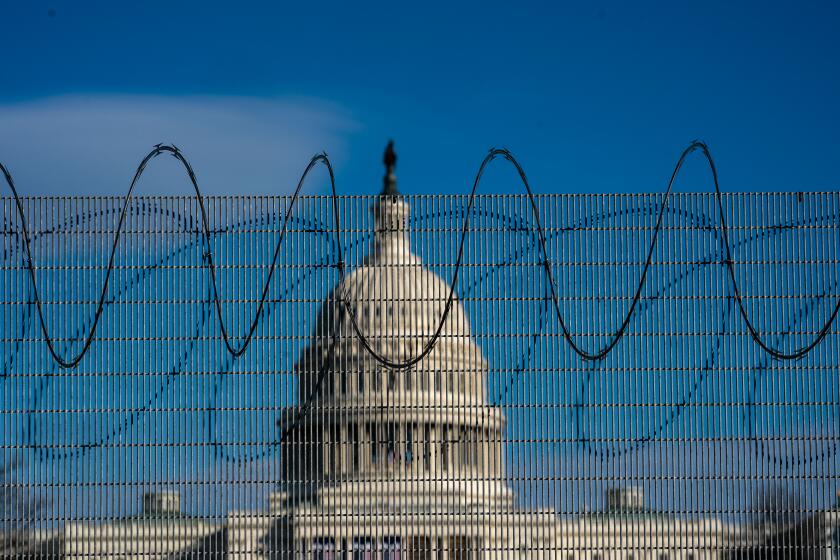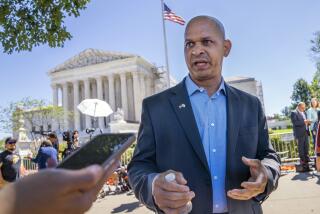Capitol Police chief apologizes for failures in Jan. 6 siege
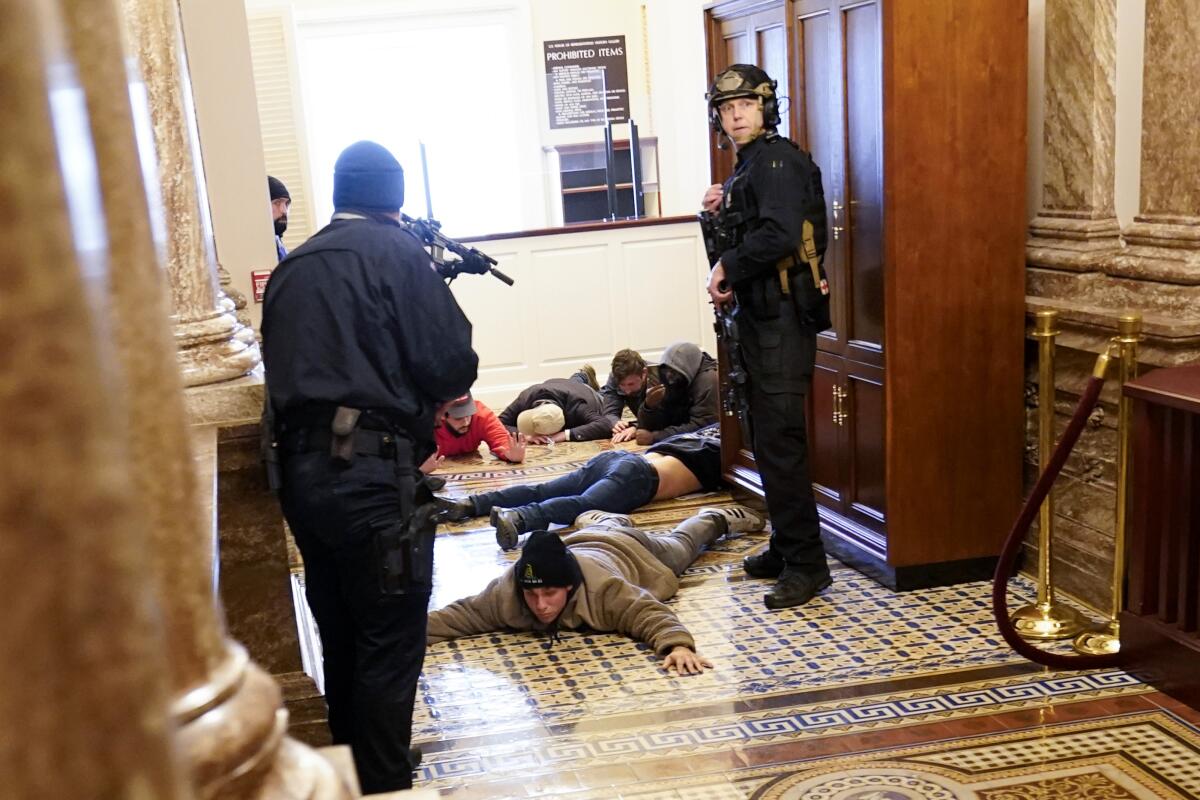
- Share via
WASHINGTON — The interim chief of the Capitol Police apologized Tuesday for failing to prepare for what became a violent insurrection despite having warnings that white supremacists and far-right groups would target Congress.
Yogananda Pittman, in prepared testimony before Congress, said the Capitol Police “failed to meet its own high standards as well as yours.” She listed several missteps: not having enough manpower or supplies on hand, not following through with a lockdown order she issued during the siege, and not having a sufficient communications plan for a crisis.
“We knew that militia groups and white supremacists organizations would be attending,” Pittman wrote. “We also knew that some of these participants were intending to bring firearms and other weapons to the event. We knew that there was a strong potential for violence and that Congress was the target.”
Trump supporters gather in the U.S. capital to protest the ratification of President-elect Joe Biden’s electoral college victory over President Trump.
Her admissions come as U.S. law enforcement investigates a number of threats aimed at members of Congress and as the second impeachment trial of former President Trump gets underway. A law enforcement official told the Associated Press that authorities have detected ominous chatter about killing legislators or attacking them outside the Capitol.
Trump supporters tore down fences and broke through doors and windows after an event in which the now-former president called on them to “fight” and “stop the steal.”
Inside the building, Congress was certifying the victory of President Biden. Five people died, including Capitol Police Officer Brian Sicknick, who was hit in the head with a fire extinguisher. A sixth person, another Capitol Police officer, later died by suicide.
The day after the riot, then-Capitol Police Chief Steven Sund said his force “had a robust plan established to address anticipated 1st Amendment activities.” Sund has since resigned, as have the sergeants at arms for the House and Senate.
Officers who have spoken to the AP described being overrun by insurrectionists who in many cases were more armed than they were. The officers said they were given next to no plan beforehand or communication during the riot.
Despite ample warnings about pro-Trump demonstrations, U.S. Capitol Police did not bolster staffing Wednesday and made no preparations for the possibility of massive violent riots.
There are conflicting accounts of why the Capitol Police did not have more backup. Pittman’s statement provoked a new round of finger-pointing.
In her testimony, Pittman said Sund asked the Capitol Police Board, which oversees the department, to declare a state of emergency and allow him to request National Guard support, but the board declined. The Defense Department has said it asked the Capitol Police if it needed the Guard, but the request was denied.
A member of the Capitol Police Board denied Pittman’s claim after her testimony was released. J. Brett Blanton, the architect of the Capitol, said that Sund didn’t ask him for help and that there was “no record of a request for an emergency declaration.”
Several law enforcement and congressional reviews are underway.
A Texas man was arrested on suspicion of taking part in the U.S. Capitol siege and posting threats, including one about Rep. Alexandria Ocasio-Cortez.
Both Pittman and Timothy Blodgett, the acting House sergeant at arms, told Congress on Tuesday that they need stronger communications and more fortifications around the Capitol building. Blodgett called on Congress to prepare for future emergencies and offered training for any offices that requested it.
“You want people to have some level of access to the government,” said Rep. Tim Ryan (D-Ohio). But he noted that it’s also important that lawmakers feel protected and positioned to respond quickly to anything that might happen.
More to Read
Sign up for Essential California
The most important California stories and recommendations in your inbox every morning.
You may occasionally receive promotional content from the Los Angeles Times.
